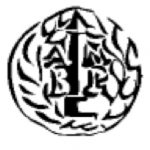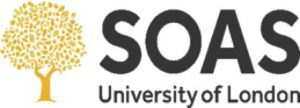
FEMISE est ravi d’annoncer que deux nouveaux membres ont rejoint son réseau, à partir de décembre 2021 :
- The Luxembourg Institute of Socio-Economic Research (LISER), Luxembourg
- The Department of Economics of the University IOANNINA, Greece.
En outre, « SOAS, University of London » a maintenant remplacé le LMEI, (The London Middle East Institute), SOAS comme membre actif du FEMISE.
Vous trouverez ci-dessous plus de détails sur ces trois institutions.
Le FEMISE est toujours ouvert à de nouveaux membres pour rejoindre le plus grand réseau EU-Med. Tous les membres sont actifs et participent régulièrement aux activités institutionnelles et techniques du réseau.
En 2020 et 2021, le Bureau a lancé un processus visant à examiner le statut des membres existants en termes de participation aux activités du FEMISE, y compris leur réponse aux votes de l’Assemblée générale. Après une classification des institutions existantes en fonction de leur participation, le comité d’adhésion du FEMISE a présenté ses recommandations au Bureau concernant les membres inactifs. Au cours des deux dernières années, un certain nombre d’institutions ont réactivé leur adhésion tandis que d’autres ont été retirées car leurs institutions n’existent plus ou sont devenues « inactives » depuis de nombreuses années.
Nous avons le plaisir d’annoncer que suite à l’adhésion des 2 nouveaux membres au réseau FEMISE, le nombre de membres du réseau a atteint 100 institutions : 54 du Nord (représentant l’UE-27 et le Royaume-Uni) et 46 du Sud (représentant les 10 pays du Sud et de l’Est de la Méditerranée).
Ceci est un vote de confiance pour FEMISE qui se développe pour devenir le plus grand réseau UE-Med dans la région, avec un nombre croissant de chercheurs des deux rives travaillant ensemble pour le développement et l’intégration de la région et un nombre croissant de contacts auprès des décideurs politiques et des organisations internationales.
Bios à propos des nouveaux membres du FEMISE (en anglais):

Luxembourg Institute of Socio-Economic Research (LISER)
FEMISE Contact Person: Frederic Docquier, “Head of ’Crossing Borders’ Research Program”
Initiated in 1989 and established in 2014, the Luxembourg Institute of Socio-Economic Research (LISER) is a public research institute located in Luxembourg under the supervision of the Ministry of Higher Education and Research. Integrated into a unified legal framework (law of 3 December 2014) LISER’s missions are to undertake both fundamental and applied research in social sciences that aim to advance knowledge, support public policy both at the national and European level and inform society.
LISER contributes to the advancement of scientific knowledge in social and economic matters across the activities of its three research departments « Living Conditions« , « Labour Market » and « Urban Development and Mobility« .
In parallel, the institute aligns itself with national and European priorities and fosters interdisciplinarity by focusing its research work on three priority research programmes: « Crossing Borders« , « Health and Health Systems » and « Digital Transformation« .


The Department of Economics of the University IOANNINA
FEMISE Contact Person: Stella Tsani, Assistant Professor at the Department of Economics, University of Ioannina
University of IOANNINA is located southwest of Ioannina, Greece. The university was founded in 1964, as a charter of the Aristotle University of Thessaloniki and became an independent university in 1970. University of Ioannina is one of the leading academic institutions in Greece.
Within the University of Ioannina, the Department of Economics undertakes theoretical, applied and policy research in the fields of economics and management.
The Department has a strong record of participation in National, Regional and European funded activities and projects and has a proven long-term experience in managing, monitoring, and coordinating research, educational and development projects
Department faculty is engaged in several projects, actions and networks of relevance to the Mediterranean region like the MED2050 foresight exercise, the Cross-KIC project “Finding innovative solutions for water scarcity in Southern Europe” led by the European Institute of Innovation and Technology, and the Euro-Mediterranean Economists Association.

FEMISE Contact Person: Professor Massoud Karshenas, Emeritus Professor of Economics.
SOAS University of London is the leading Higher Education institution in Europe specialising in the study of Asia, Africa and the Near and Middle East. With more than 300 academics dedicated to research and teaching in these areas, it has become one of the world’s leading institutions of its kind.
The School was founded in 1916 as the School of Oriental Studies. It took its present title in 1938, by which time it had also established itself as a centre for African Studies. It moved to its present site in 1941.
With its vast repository of knowledge and expertise on the specialist regions, the Institute is well placed to inform and shape current thinking about the economic, political, cultural, security and religious challenges of our world. SOAS scholars grapple with the pressing issues confronting two-thirds of humankind today: democracy, development, economy, finance, public and corporate policy, human rights, migration, identity, legal systems, poverty, religion, and social change.
SOAS publishes and hosts a number of internationally renowned publications. They include area studies and disciplinary journals and books and offer a range of historical and contemporary perspectives.


